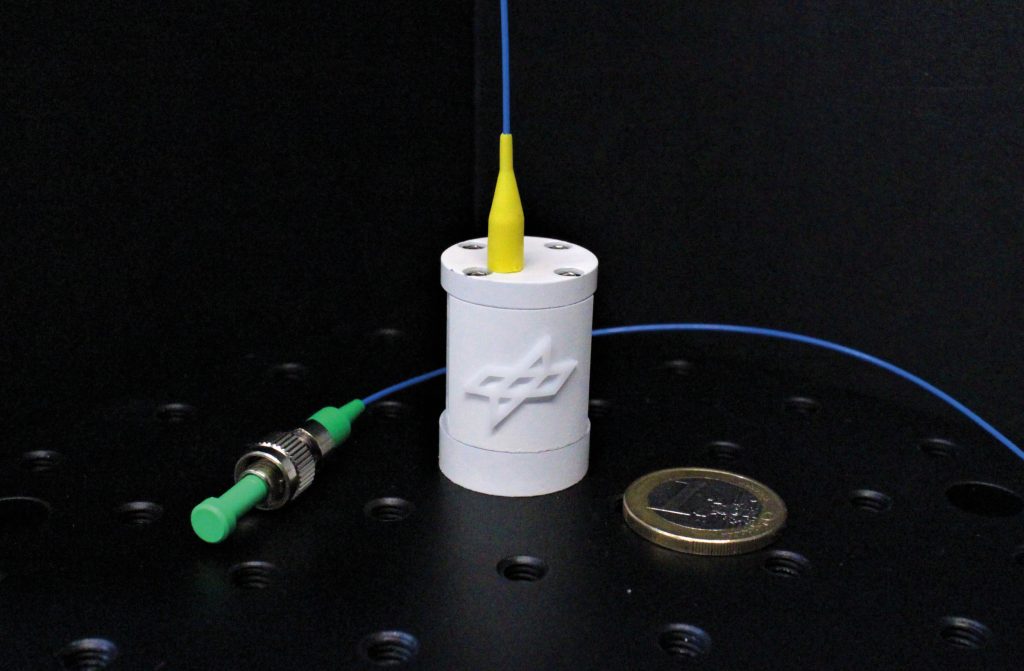Optomechanical inertial sensors
SensTek GmbH is a high-tech spin-off of the German Aerospace Center and focuses on the development and commercialisation of unique optomechanical technology for acceleration and inertial measurements. One of the unique selling points of the technology is a proprietary measuring principle for self referencing inertial measurements using highly-compact, portable optomechanical sensors. The optomechanical inertial sensors (OMIS) are able to perform continuous broadband measurements and exhibit extremely high micro-g bias stabilities over long timescales, without interference from electromagnetic felds.
OMIS can be used as a portable primary and secondary standard device for acceleration and force measurements. This means that the products provide measurements that are directly traceable to the international system of units (SI), without the need for an external, costly and time-consuming calibration procedure.
In addition, these products open up new possibilities for both terrestrial and satellite-based navigation. These innovative measurement systems have applications in the automotive and transport technology sectors, as well as the renewable energy sector (for example wind power plants or even conventional power plants) and the aviation, shipping, space travel and defence industries. OMIS are particularly advantageous when applied to autonomous vehicles that use intelligent systems, smart sensors (smart industry process – Industry 4.0) as well as positioning and time-referencing systems (GPS/next-generation Galileo systems) for inertial navigation. SensTek is developing the OMIS to cover several sensitivity ranges and measurement bandwidths. As such, OMIS offer considerable advantages as gravimeters and gradiometers for geoscientifc purposes like the identifcation of reservoirs in the minerals and oil industry. In terms of navigation, these compact inertial measurement systems are particularly useful in environments where GPS/Galileo signals are unavailable, for example on submarines or in environments where GPS or Galileo signals are intentionally blocked or scrambled.
German Aerospace Center (DLR)
Ruven Spannagel · E-Mail: ruven.spannagel@dlr.de · DLR.de/en
